
Azure Architecture Best Practice for securing Azure Virtual Networks Beyond the Horizon...
An NSG works much like a firewall. While an Azure Firewall monitors traffic at more of a global level, an NSG is more defined and is applied to specific subnets and/or network interfaces. Both firewall and NSG allow you to apply rules based on IP addresses, port numbers, networks, and subnets.

Azureの「NSG」と「Azure Firewall」の違いについて Rainbow Engine
Search for "firewall" in the Search box and click on Firewalls to open the Firewalls blade. 3. In the Firewalls blade, click Create. 4. Provide values for all necessary fields like the Azure subscription you'll be deploying Azure Firewall into, the resource group (Create a new one if you need to ), and the region.
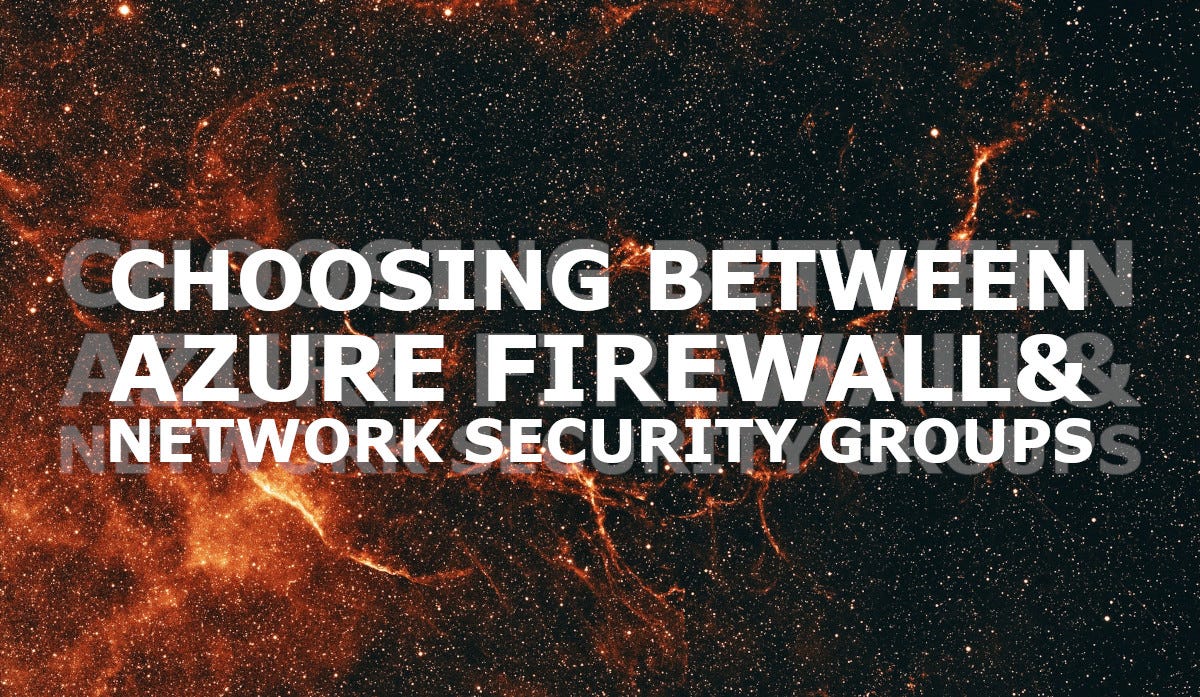
Choosing between Azure Firewall and Network Security Groups by Rolf Schutten ITNEXT
Azure Firewall and Network Security Groups (NSGs) are the Microsoft solutions for Azure network security. Azure Firewall is an intelligent firewall service that provides threat protection for workloads running in Azure. In contrast, an NSG filters network traffic among Azure resources in a Virtual Network (VNet).
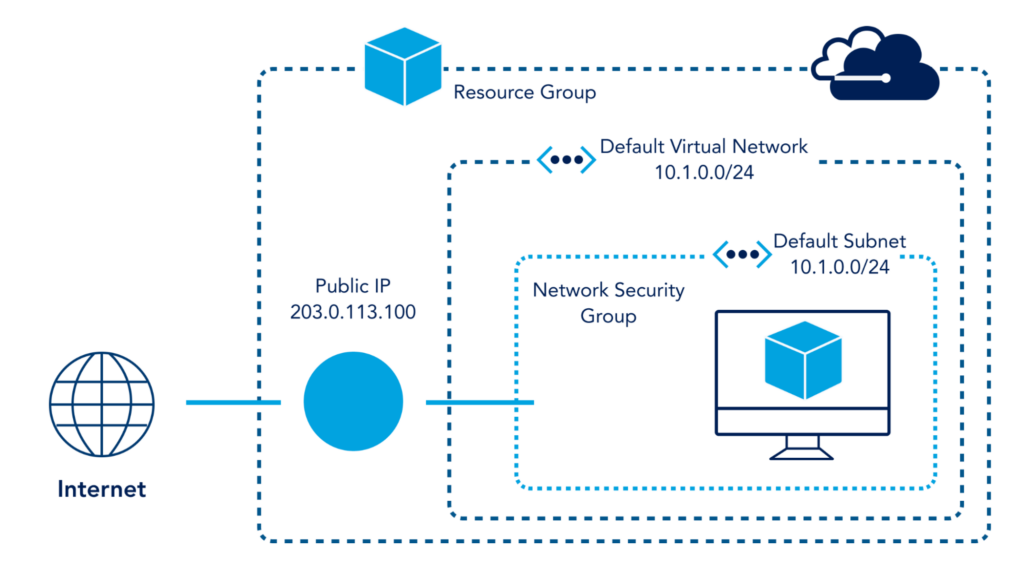
Azure Firewall vs NSG Tutorial & Examples OpsRamp EUVietnam Business Network (EVBN)
Azure Firewall is an OSI L4 and L7, while NSG is L3 and L4. Examine the OSI layers. While Azure Firewall is a comprehensive and robust service with several features to regulate traffic, NSGs act as more of a basic firewall that filters traffic at the network layer. Azure Firewall is adept at analyzing and filtering L3, L4 and L7 traffic.
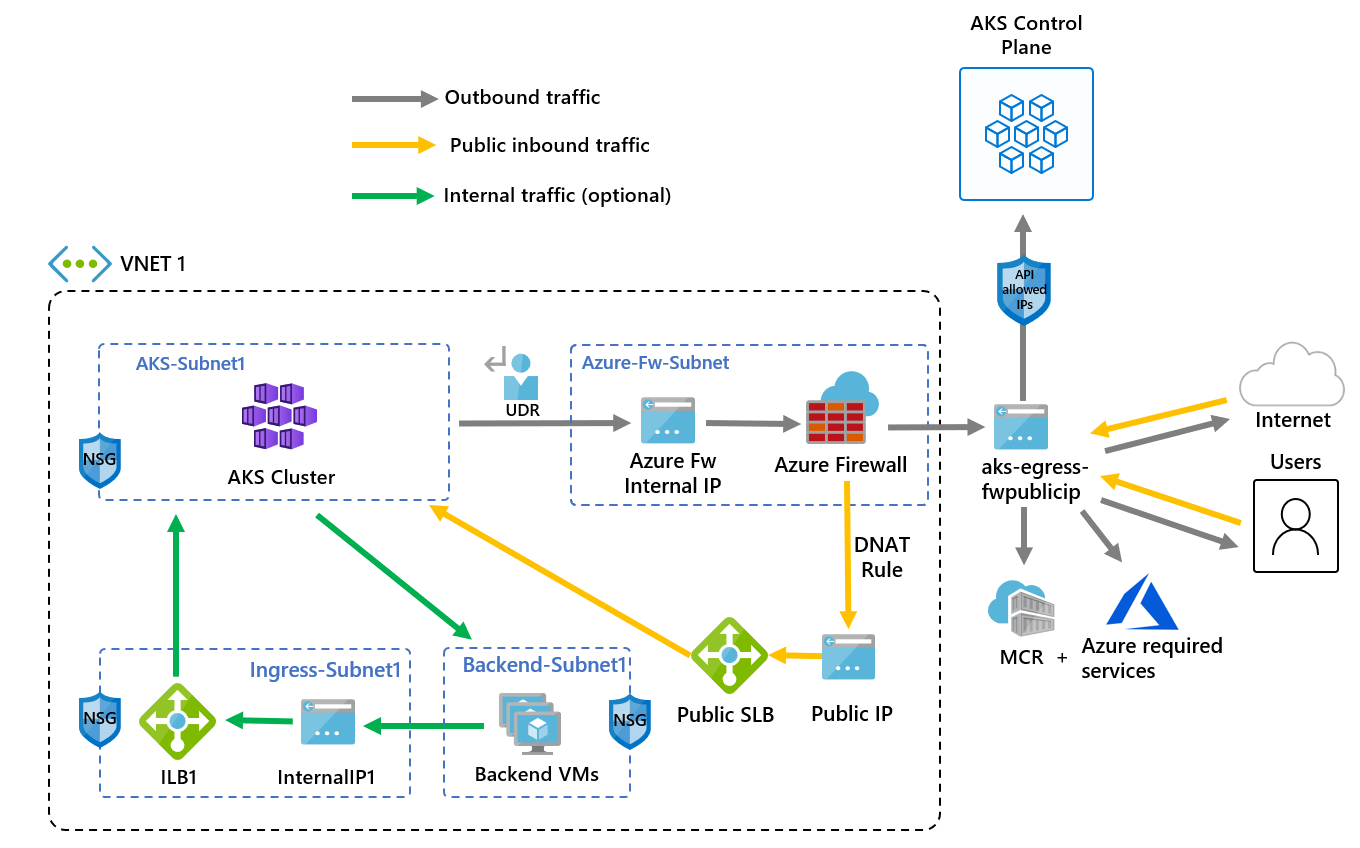
Limit Network Traffic with Azure Firewall in Azure Service (AKS) Azure
Azure Firewall vs NSG battle continues to escalate. Both services are two primary security services from Microsoft. Each service has its perks of security on different network levels. Azure Firewall is an intelligent solution to filter network traffic. On the other hand, Azure Network Security Group provides security to inbound and outbound.

Azure NSG vs Firewall Learn Azure Firewall vs Network Security Group EUVietnam Business
Network Security Groups are well-suited for cloud environments and basic network segmentation, while Firewalls are essential for perimeter security and providing application-specific protection.

Difference between Azure Firewall & Network Security Group? The Tech Guy
The key difference between Azure Network Security Group (NSG) and Azure Firewall lies in the level at which they provide network security. Azure Network Security Group provides traffic filtering at the network layer, while Azure Firewall provides a more granular approach at the application layer.
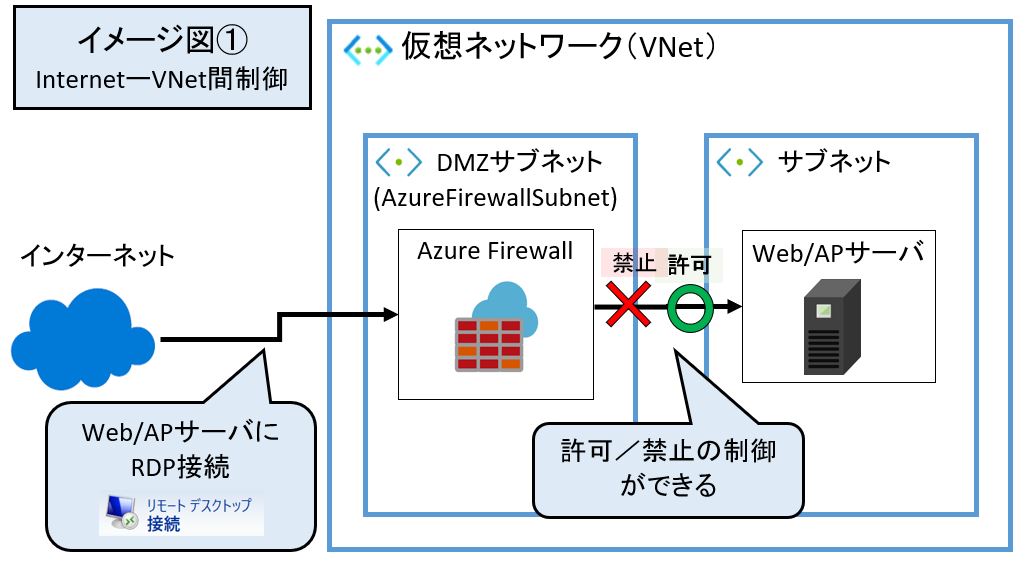
Azureの「NSG」と「Azure Firewall」の違いについて Rainbow Engine
3. Azure Firewall vs NSG: Application Visibility. Azure Firewall: azure firewall vs nsg vs application gateway provides detailed application-level visibility. It can identify and control traffic based on application protocols and FQDNs. This allows you to define rules that are more granular and application-specific.
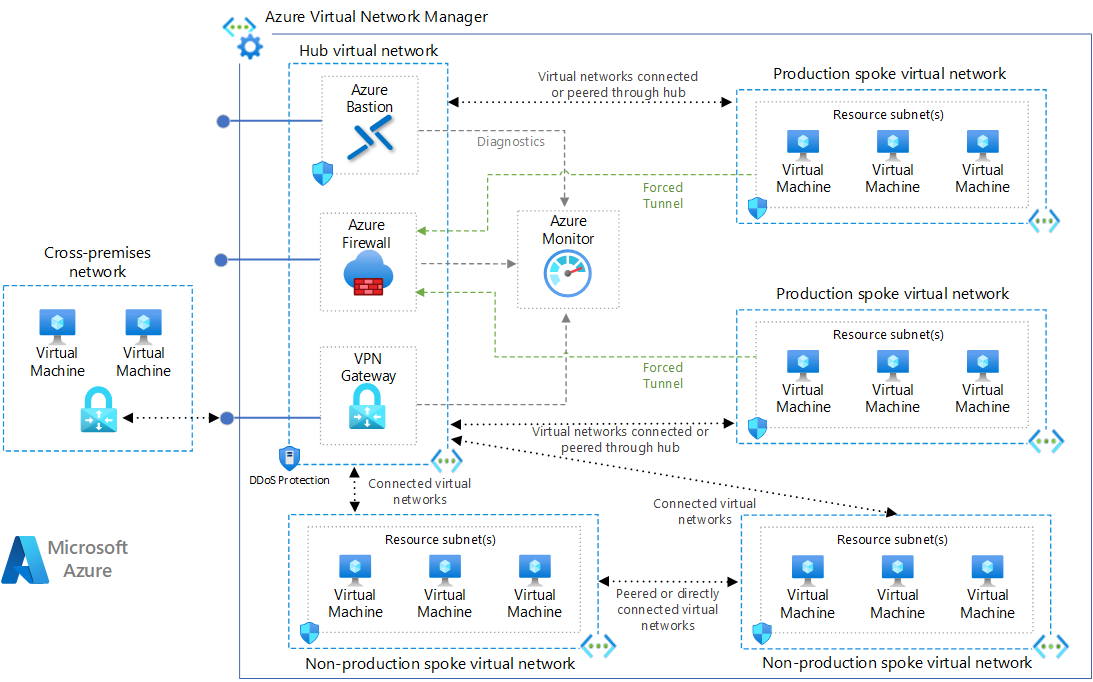
Grundlagen Azure Hub and Spoke Architektur
Azure Network Security Groups (NSGs) is an OSI layer 3 & 4 network service for refining traffic to and from an Azure Virtual Network (VNet). They can be associated with subnets or network interfaces of Azure VMs. It's recommended to associate NSGs to subnets or network interfaces, but not both. The same NSG can be applied to many subnets.
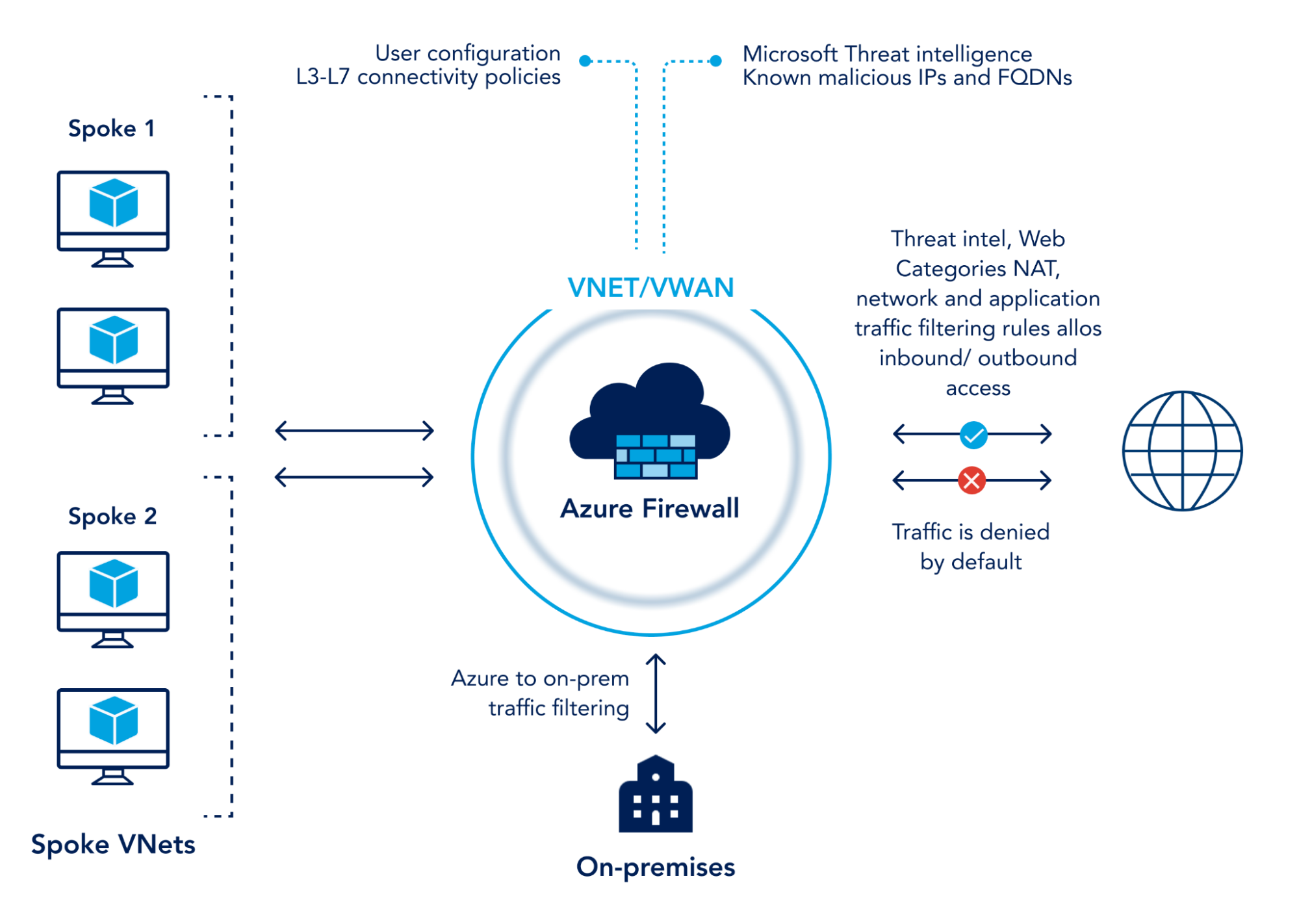
Azure Firewall vs NSG Tutorial & Examples OpsRamp
Azure Firewall vs NSG. Azure Firewall is a robust and fully managed firewall service. Azure NSG is a basic firewall. Azure Firewall come with dozen of features to ensure maximum protection of your azure resources. Azure NSG is used to filter traffic at the network layer. Azure Firewall can analyze and filter L3, L4 traffic, and L7 application.

Azure Network Security group and Azure Firewall
Thank you for posting the question to the Q&A forum. Unlike Azure Firewall, which monitors all traffic for workloads, NSG is commonly deployed for individual vNets, subnets, and network interfaces for virtual machines to refine traffic. It does so by activating a rule (allow or deny) or Access Control List (ACL), which allows or denies traffic.

How to Set up an Azure Firewall (And Why Not NSGS)
An Azure Firewall is a cloud-native and intelligent network firewall security service that protects cloud workloads running in Azure against threats. It provides traffic controls of both east-west traffic (between or within data centers) and north-south traffic (flowing in and out of a data center). Azure Firewall is a stateful firewall, with.

Free Azure Tutorials for beginners and professionals
Azure Firewall offers the same capabilities as of an NSG, and many more in addition. Azure Firewall supports application FQDN tags, whereas NSG lacks this feature. Another major difference between an NSG and Azure Firewall is that Azure Firewall allows you to mask the source and destination network addresses while NSG doesn't.

Azure Firewall vs NSG Azure NSG vs Firewall NSG vs Firewall Azure
Azure Firewall is a managed, cloud-based network security service that protects your Azure Virtual Network resources. It's a fully stateful firewall-as-a-service with built-in high availability and unrestricted cloud scalability. You can centrally create, enforce, and log application and network connectivity policies across subscriptions and.

First look at the new Azure Firewall Preview LaptrinhX
This can be achieved using NSGs and you do not necessarily need a Firewall to do the same. You can use the same NSGs if you would like, as long as the VMs are in the same region/subscription. If they are in different regions, you can still be able to use an Azure Resource Manager template to export the existing configuration and security rules.

Introduction to Azure Network Security Group (NSG) The Network DNA
Azure Firewall vs. NSG: Limitations. The limitations of NSG are clear. It is a traditional rule-based firewall that doesn't offer intelligent features found in many modern security appliances. It provides basic firewalling, but administrators that require more advance features will need an additional solution.